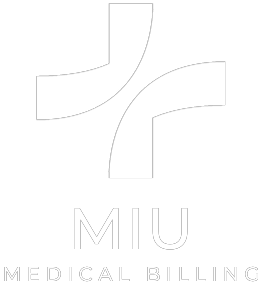Operating a small medical practice is associated with special financial problems. Ineffective billing may affect the cash flow and operational efficiency to a considerable extent through claim denials to unresponsive reimbursements. Small practice revenue cycle management (RCM) in Plano represents a full-scale solution that is aimed at automating financial operations, enhancing revenues, and ensuring that the practice’s operation is smooth.
What does Revenue Cycle Management mean?

Revenue cycle management can be defined as the complete process of handling the finances of a healthcare practice. These involve registration of patients, checking of insurance, coding, filing of claims, postage of payments, and non-payment of claims. RCM is aimed at maximizing revenue, minimizing mistakes, and ensuring that healthcare regulations are met.
When it comes to small practices, the difference between a successful clinic and a clinic that has a hard time surviving can be effective RCM.
Why Small Practices Need RCM
Small clinics can lack personnel and resources to deal with billing, coding, and claims management. Delays or mistakes can lead to the loss of revenue, patient dissatisfaction, and overhead. Practices should be able to implement RCM to:
- Enhance Cash Flow – Effective handling of claims will lead to prompt reimbursement.
- Minimize Claim Denials – Coding and documentation of claims are minimized to reduce claims that are declined.
- Improve the efficiency of operations – The employees are able to concentrate on patient care and not on administration.
- Ensure Compliance – Proper RCM assists in keeping HIPAA and other rules within compliance.
The important elements of revenue cycle management
Registration of patient and Insurance Checking.
Billing is seamless with the right entry of data at the beginning of the patient visit. An insurance check will eliminate the claim refusal because of coverage problems and expedite payments to the practices.
Medical documentation and coding.
Claims must be properly coded with CPT, ICD-10, and HCPCS codes to approve them. One of the causes of denials is mis-coding, which professional RCM ensures is accurate.
Claim Filing and Following up.
On-time claim submission and pursuing unpaid/denied claims is extremely important to ensure cash flow consistency. This is efficiently operated by RCM providers in order to decrease delays.
Posting and Reconciliation in Payments.
Proper recording of payment has made the financial records of the practice correct. It also assists in the process of determining the trend of payment delays or recurring denials.
Reporting and Analytics
The detailed reporting gives an idea of revenue, denials, and bottlenecks during operations. Analytics enables a small practice to make decisions that are informed by growth and improvement.
Outsourced RCM has benefits for Small Practices
Small clinics in Plano are increasingly gaining popularity in outsourcing revenue cycle management. Here’s why:
- Cost Savings – Removes the necessity to have a billing team within the company.
- Availability of Expertise – Professional RCM providers are in touch with changes and regulations in the industry.
- Quick Reimbursements – Efficient operations make claims to handle fast.
- Scalable Solutions – Services are able to expand along with your practice when the number of patients grows.
Companies such as MIU Billing offer custom RCM services to small practices that have the benefit of ensuring that even small-resource clinics are able to maximize revenues without sacrificing patient care.
The way RCM can enhance patient satisfaction

Efficient revenue management not only benefits the practice in a monetary way, but it also improves the patient experience. Clarity in billing statements, correct charges, and professional response to inquiries will reduce confusion and frustration and lead to trust and loyalty.
Financial Risks of Ineffective Revenue Cycle Management
In the case of small practices in Plano, poor revenue cycle management may represent one of the largest threats to financial stability. It can be denied due to missed charges, wrong coding, and lateness in submitting claims, which will cause a big loss of revenue in the long run. In most instances, smaller clinics have limited cash reserves such that even a minor delay in reimbursements may put pressure on day-to-day operations. Administrative duties can overwhelm the staff members, and further extend the chances of committing mistakes and patient dissatisfaction.
The practices also tend to experience compliance problems without an appropriate RCM system, as the alterations in regulations also need frequent updates and education. Such risks indicate the importance of having professional revenue cycle management, as it is not only convenient but also essential. Overcoming these obstacles, small practices could secure their source of revenue, keep them in compliance, and establish a stable basis of financial resources in the long term of their development.
Small Practice RCM Take a Turn with Data and Analytics
The possibility to utilize data and analytics to enhance decision-making is one of the strongest opportunities of modern revenue cycle management. In the case of small practices in Plano, a clear image of financial health can be seen by accessing the in-depth reports on the status of claims, denial trends, and payment cycles. Practices can also take proactive measures in solving problems that recur by responding in advance to the issue of revenue problems once they are realized.
As an illustration, analytics can show that a big portion of claims is disapproved on the basis of coding mistakes. Through this understanding, the practice can introduce staff training or change workflow to minimize errors. On the same note, information on payment delays can be used to negotiate conditions with insurance companies to benefit the clinics. RCM based on data enables the small practices to make smarter, evidence-based decisions that can increase not only the revenues but also efficiency and compliance. Analytics, in this manner, make RCM a growth and patient satisfaction tool.
FAQs
Q1: What is the difference between revenue cycle management and conventional medical billing?
RCM is a holistic procedure that includes all financial aspects of a patient visit, registration through payment, compared to medical billing, which involves claims submission and collection.
Q2: Does a small practice have the affordability of professional RCM services?
Yes. RCM services can be outsourced at a reasonable price and can also be scaled up to provide access to expertise at affordable rates without any infrastructure overheads that are associated with having an in-house team.
Q3: Does outsourcing RCM have an impact on patient relationships?
Not negatively. Outsourcing simplifies administrative operations, and the personnel can pay more attention to the patients, besides offering assistance during professional billing processes.
Conclusion
Small practices in Plano and their success depend on effective revenue cycle management. RCM will enable clinics to attend to what really matters the most, which is patient care, by streamlining processes, minimising errors, and ensuring that reimbursements are made in time. By collaborating with a professional service, such as MIU Billing, the small practices are able to obtain the tools, knowledge, and technological assets to enhance revenue, reduce administration costs, and have a successful practice.




